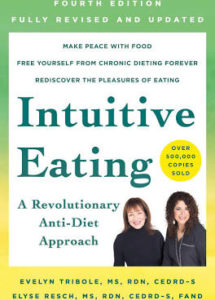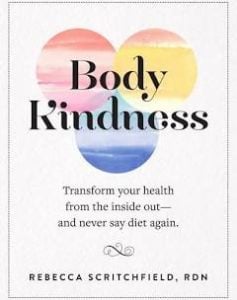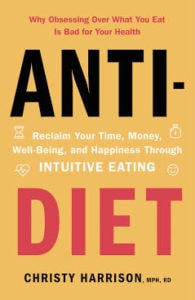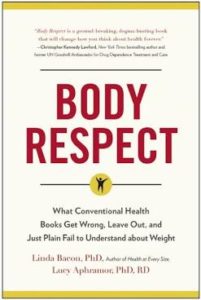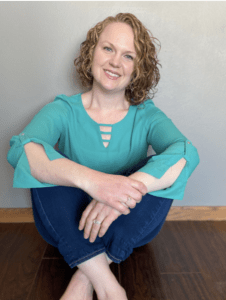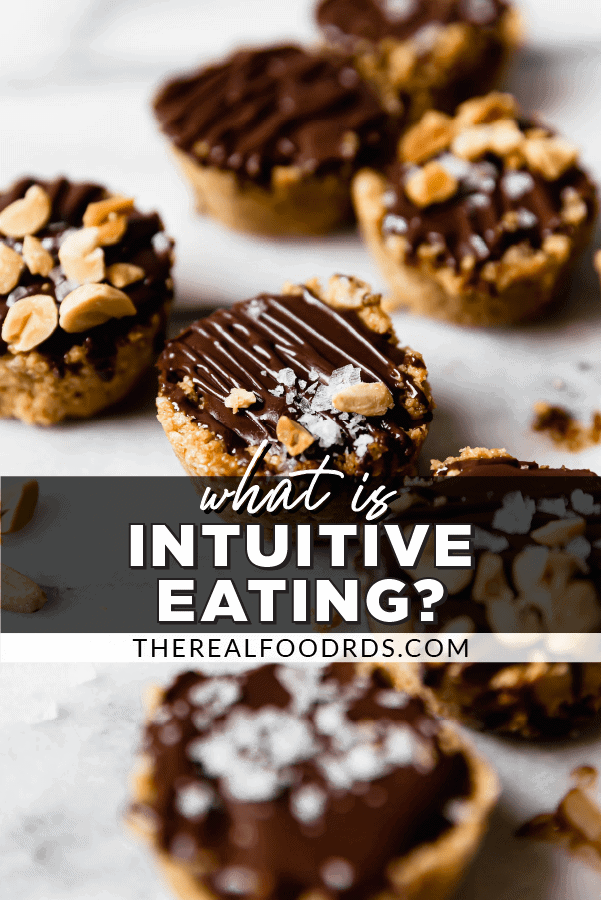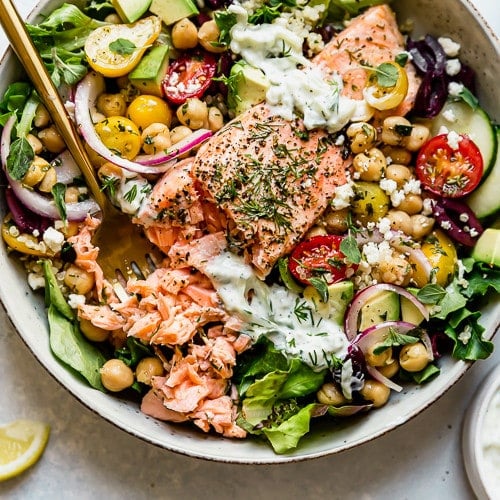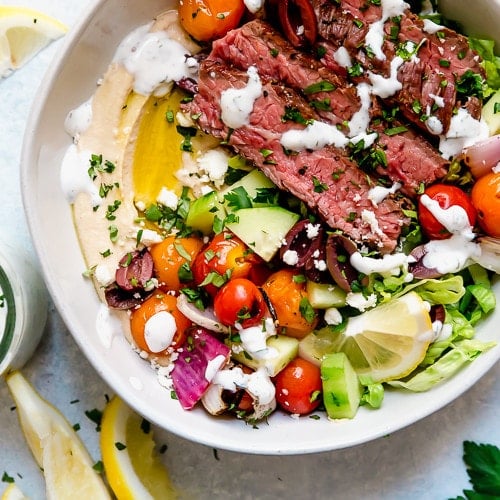Intuitive eating is a framework about learning to become the expert of your own body. It focuses on trusting your inner body wisdom to make choices around food that feel good in your body, without judgment and influence from diet or wellness culture.
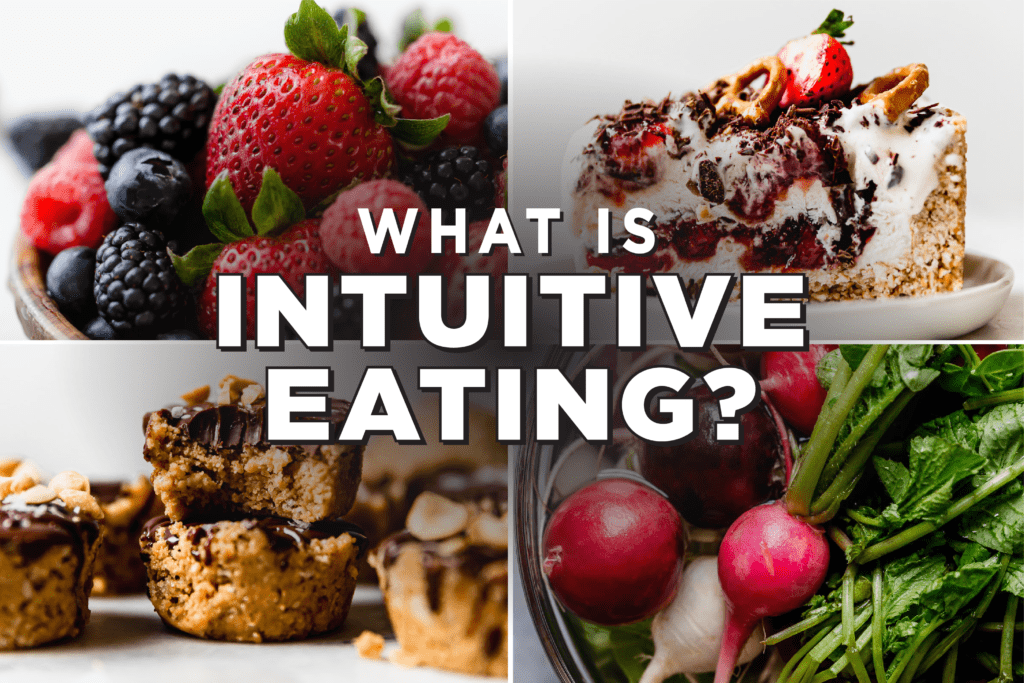
A few months ago, we asked our community on Instagram what questions they had around Intuitive Eating. Oh my, did the questions ever come flooding in! What is it? How do you start? Who is it for?
We’d like to introduce to you dietitian, Erin Gonzalez, MS, RDN, LD of www.eringonzaleznutrition.com, who graciously and willingly answered your top questions around Intuitive Eating. Take it away, Erin!
Q. What is Intuitive Eating?
A. Intuitive eating is a framework about learning to become the expert of your own body. It focuses on trusting your inner body wisdom to make choices around food that feel good in your body, without judgment and influence from diet or wellness culture.
Intuitive Eaters let go of the misconception that food is either ‘good’ or ‘bad’ and allow freedom and permission to eat what they want without guilt or shame. Each of us chooses what feels best in our bodies. When our eating becomes an obsession, it increases anxiety and takes away from social experiences due to its rigidity. Intuitive Eaters seek flexibility rather than an all or nothing mentality.
Intuitive eating is a peace movement towards ending the war with our bodies, learning to accept the diversity of bodies, and that there is no one “perfect” way to eat that allows everyone to live in a body that fits the thin ideal.
The end goal for all Intuitive Eaters is finding a way of eating that focuses on connection and attunement with the body while seeking nourishment, satisfaction, and enjoyment with food.
You can follow Erin on Instagram @heal.binge.eating and visit her website: www.eringonzaleznutrition.com to sign-up for her weekly newsletter featuring tips, tools, and videos on healing emotional overeating and binge eating. Click here to grab Erin’s 5 Steps to Break the Binge Eating Cycle Guide (it’s FREE!).
This post may contain affiliate links that won’t change your price but will share some commission.
Q. How do food intolerances play into Intuitive Eating?
A. Intuitive eating is centered around self-care and listening to how our bodies feel. Our goal is to feel better at the end of eating than we did when we started, most of the time.
If someone has lactose intolerance, they would be honoring their body by choosing dairy-free options. However, they may also, on occasion, choose to eat dairy anyways without a sense of judgment or moralization attached to it. For more on this topic, I highly recommend this podcast episode.
Q. How do you prioritize health & cravings? How can the two coexist knowing that one will sometimes trump the other?
A. Intuitive eating focuses on honoring our health through gentle nutrition. We acknowledge that there is no one perfect way to eat and that one eating decision or even day of eating decisions will not lead to nutrient deficiencies or weight gain.
You do not have to eat every meal or snack perfectly to be healthy. I like to say, “A choice is just a choice unless it is a behavior.” Our health depends on the choices we make consistently over time, think: progress, not perfection.
Q. What do you do if you have a hard time recognizing your hunger and full signals?
A. Each of us is born with the innate ability to know when we are hungry and full. Our relationship with food can change over time for a variety of reasons. Many of us lose that freedom, and intuitive eating is learning to reclaim it.
It is important to note that intuitive eating is NOT “eat when you are hungry; stop when you’re full.” Intuitive Eating is a dynamic, self-care eating framework about learning and discovery. Intuitive Eaters utilize the hunger and fullness scale to guide meeting their energy needs while also recognizing the normalcy of eating outside hunger at times. This process may sound simple but after years (or decades!) of trusting others to be the experts for us (think diet talk, diet culture, media messages, and food rules) relearning or even just learning how to listen and become the expert of our bodies again takes time and lots and lots of practice.
For many, communication with hunger and fullness cues have been ignored, tuned out, or overridden for so long that connecting back to them can be a challenge at first. Hunger and fullness feel different in each of our bodies. Taking the time to consistently check-in, notice, and explore what hunger and fullness feel like in our body is vital. Practicing mindfulness exercises such as meditations, deep breathing, and body scans are powerful ways to reconnect. Check out these meditations from Marci Evans for tuning back into hunger and fullness: https://marcird.com/resources/.
Are you tired of spending hours thinking about food and your body?Do you want to learn an alternative to dieting?Do you want a supportive community through the Holidays?Sign-up here to learn more about the 30 day Roadmap to Intuitive Eating which starts November 9th.
Q. One of the Intuitive Eating Principles is rejecting diet mentality. Is the idea of rejecting diet mentality black or white? OR can diet mentality and the trigger be different from one person to another?
A. Each person’s Intuitive Eating journey is unique to their own experiences. The idea of rejecting diet mentality is to explore and get curious about how our relationship with food and our body has impacted our physical, psychological, emotional, and social health (think: eating behaviors, relationships, mood, time, social events, etc.).
Nutrition can be a tool, and it can also be a weapon. Something that takes away all our energy and becomes harmful rather than improves our overall health.
Q. Is it important to have breakfast or can you Intermittent Fast with Intuitive Eating?
A. Physical hunger is a physiological cue from the body that it has a need. Intermittent fasting follows external rules providing a specific eating timeframe that disconnects from allowing one to listen, trust, and honor internal cues from the body. Intuitive Eating is a framework that focuses on reconnecting with these internal cues and cannot be combined with any counting or rule-driven approach.
Q. Who is Intuitive Eating for? Who is it not for?
A. Intuitive Eating is for everyone; however, it is best to work with a trained eating disorder professional who can assist in this process for someone in an active eating disorder or recovery from an eating disorder.
Q. Can Intuitive Eating be paired with meal planning and/or meal prepping?
A. Absolutely! Meal planning/prepping is one way to create an intention around taking care of our bodies. When meal planning considers flexibility and pleasure with eating, it can become a powerful ally towards making peace with food.
Q. Where is the best place for someone to learn more about Intuitive Eating?
A. Hands down, the first place to get started is to immerse yourself in the non-diet, Health at Every Size world.
Some books to get you started:
- Intuitive Eating 4th Edition by Evelyn Tribole and Elyse Resch
- Body Kindness by Rebecca Schritchfield
- Anti-Diet by Christy Harrison
- Body Respect by Lindo Bacon and Lucy Aphramor
These four books can be found on Amazon – Intuitive Eating 4th Edition, Body Kindness, Anti-Diet and Body Respect
Follow people with body positive and anti-diet social media accounts. Here are a few of my favorite Instagram accounts:
- Kylie Mitchell, MPH, RDN, LD (@immaeatthat)
- Robyn Nohling, FNP, RD (@thereallife_rd)
- Shana Minei Spence, MS, RDN, CDN (@thenutritiontea)
- Kara Lydon, RD (@karalydonrd)
- Christy Harrison, MPH, RD, CDN (@chr1styharrison)
- Alexis Joseph, MS, RDN, LDN (@hummusapien)
- Paige Smathers, RDN, CD (@paigesmatherrd)
- Marci Evans, RD (@marcird)
- Ayana Habtemariam MSW, RDN (@thetrillrd)
- Brenna O’Malley, RD (@thewellful)
- Bonnie Roney, RD (@diet.culture.rebel)
- Claire Chewning, RD (@clairchewning)
- Rachel Hartley, RD (@rachelhartleyrd)
- Haley Goodrich RD, LDN, CEDRD-S (@hgoodrichrd)
- Lauren Cadillac, RD, CPT (@feelgooddietitian)
- Wendy & Jess, RDs, CDEs (@foodheaven)
- Deanna Wolfe, MS, RDN (@dietitiandeanna)
Ready to say goodbye to the diet rollercoaster and live a life free from guilt, shame, and anxiety around food?
Click here to grab Erin’s 5 Steps to Break the Binge Eating Cycle Guide (it’s FREE!).
Erin Gonzalez, MS, RDN, LD practices utilizing a non-diet, Intuitive Eating, Health at Every Size approach. Erin is passionate about helping clients regain trust, compassion, and connection with their bodies. Erin focuses on helping each client develop a positive relationship with food while learning to be the expert of their bodies.
You can follow Erin on Instagram @heal.binge.eating and visit her website: www.eringonzaleznutrition.com to sign-up for her weekly newsletter featuring tips, tools, and videos on healing emotional overeating and binge eating.
